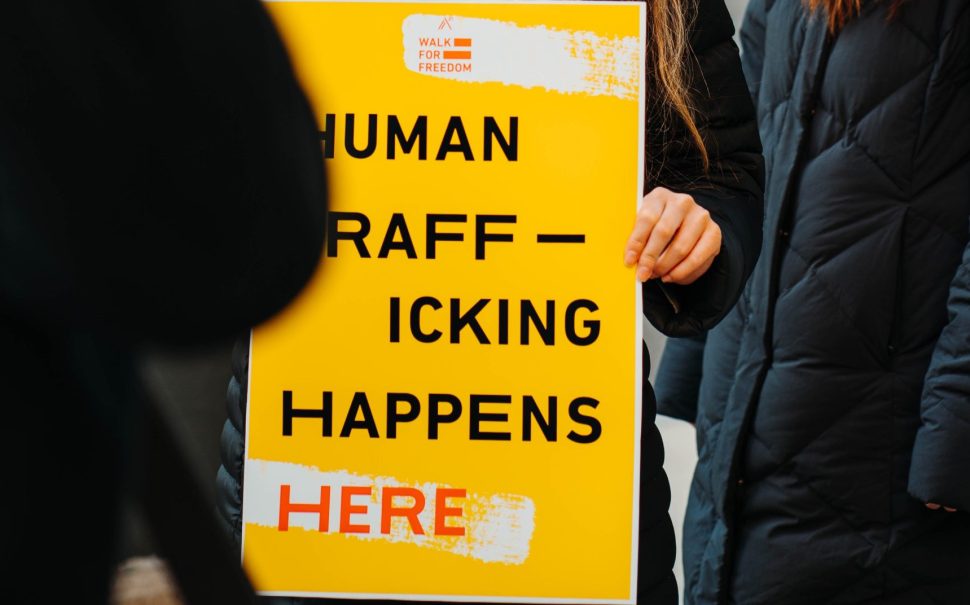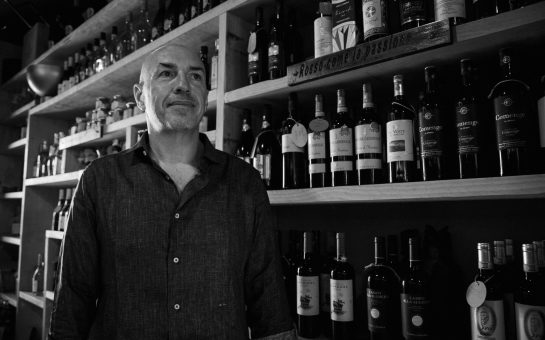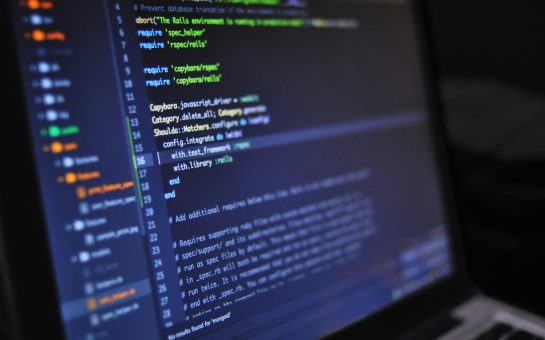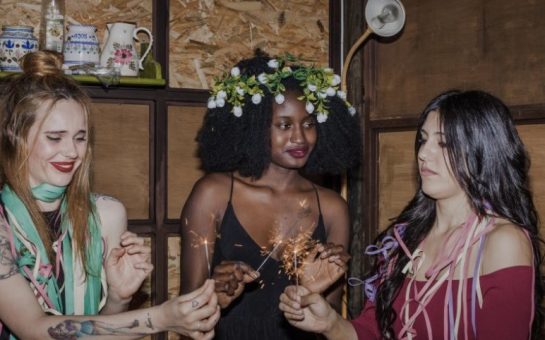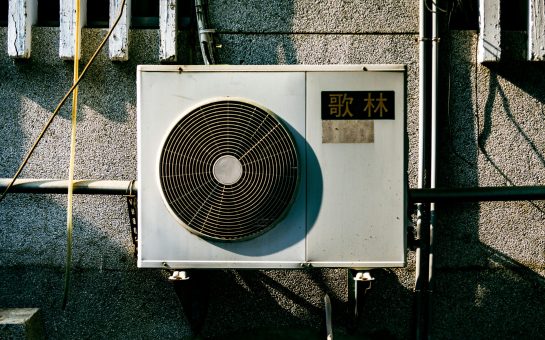*Content warning: this piece contains references to sexual assault*
Victims of modern slavery continue to be branded as criminals for “exploiting” systems in place to support them because of the rhetoric used in illegal immigration legislation.
Nevertheless, there was a 9% increase in child victims of human trafficking in 2021, according to the Office for National Statistics, while more than half of all-child modern slavery referrals are British-national children.
The generated stereotypes can prevent victims from identifying themselves, stop them seeking help and result in the public failing to recognise potentially suspicious behaviour.
Robyn Phillips, Director of the Human Trafficking Foundation, explained that human trafficking rarely matches the stereotype of victims being bound by the wrists.
She said: “I think that the using of people with bound wrists and handcuffs perpetuates this idea to the public that that’s what modern slavery looks like.
“Then they don’t see it themselves because they think, well that person’s not bound therefore they’re not a victim, when actually they’re likely to be passing it every day in the streets.
“It also means that victims are not recognising themselves within that because they are also not specifically bound, so I think that is a real issue.”
The government’s attitude towards victims therefore has been accused of fuelling stereotypes such as these, where victims have to “fit the bill” in order to receive support.
According to the Human Trafficking Foundation, started by a group of MPs and representatives from the House of Lords to make sure that modern slavery stayed on the government’s agenda, the reality is that young people in the UK are coerced into selling drugs, while homeless people are exploited due to their vulnerability.
Traffickers prey on helplessness, offering desperate individuals things they can’t refuse, like a roof over their heads, meals or cash in hand.
In some cases, parents may even give their children up to traffickers thinking that they would be able to provide them with better housing or food than their family can.
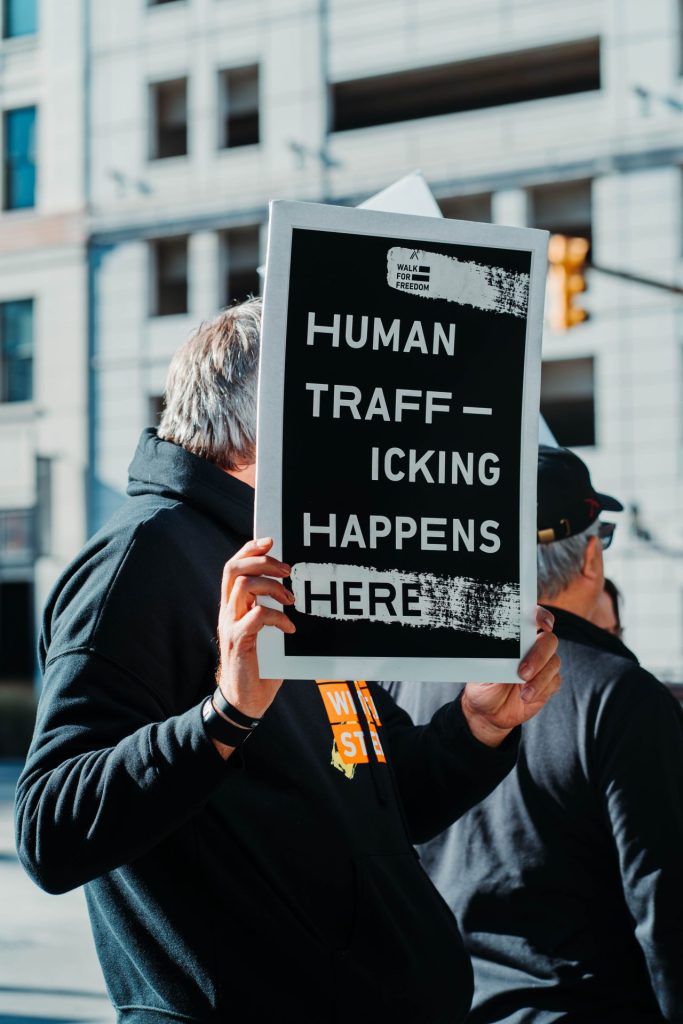
Instead of bound wrists, more realistic indicators of trafficking include: signs of starvation or malnourishment, anxiety or fear, violence or force, incongruity to surroundings or underage girls dressed like adult women, or minors travelling with an adult that appears to have no connection to them.
The repercussions of victim branding results in sufferers not being able to identify themselves as victims and seek appropriate help, abandoning many, including children, to face horrors alone.
This is something that victim Kat Rosenblatt felt.
For a long time, she felt like an outsider to society, seen as the outlaw, despite being the victim who endured atrocious crimes inflicted on her as a child.
She said: “I knew something had happened to me, but it wasn’t until I met my mentors that I was identified as a victim of human trafficking when I was 13 being kidnapped and sold for sex, and I didn’t understand all of the nuances until she explained it to me.”
Kat was trafficked at 13 and 16 years old in Miami, and has since set up her own foundation There is Hope for Me, authored the book Stolen, and is authoring another book with 15 co-contributors.
When she was 13, a young girl befriended her and gained her trust.
With no knowledge of the girl’s hidden role as a recruiter for the traffickers, Kat believed her when she said a man wanted to be a ‘fatherly figure’ to her.
Without the education on the signs of trafficking, Kat followed the girl to meet the man, who insisted she wear a bridal dress to meet him, where she was captured and trafficked as a sex slave.
Kat said: “I wanted to feel a sense of belonging, a sense of love, a sense of family.
“But instead, I lost my virginity to rape at 13. They are able to control you because you are young.”
Kat said she had a gut instinct that something wasn’t right, and started to fight for her escape.
After managing to escape, she was later caught by the traffickers, drugged, and left to die on the side of the road.
Luckily, she was able to stagger to a payphone and got the help she needed just in time.
She said: “I just did not want to die at 13. I did not want that to be my end. I believed that there was a bigger plan for my life.
“I would have absolutely loved for somebody to show concern. Just the smallest act of kindness goes a long way when you’re being victimised in that way, and you’re being brainwashed to believe that everybody in society is against you.”
This exposes the harrowing damage of prejudiced legislation on those being trafficked.
A lot of the trauma support for survivors is around this very issue.
Kat explained: “Understanding as a survivor that this is not your fault, you did nothing wrong and nobody deserves to be abused or exploited.
“I see a lot of survivors who are just embarrassed to ask for help or to tell anyone about what happened.”
Working to combat trafficking in the country, Pace UK, a national charity supporting parents and carers who have a child that is being sexually and/or criminally exploited, believes that this is a key indicator of the need for a national strategy to better protect children and their families.
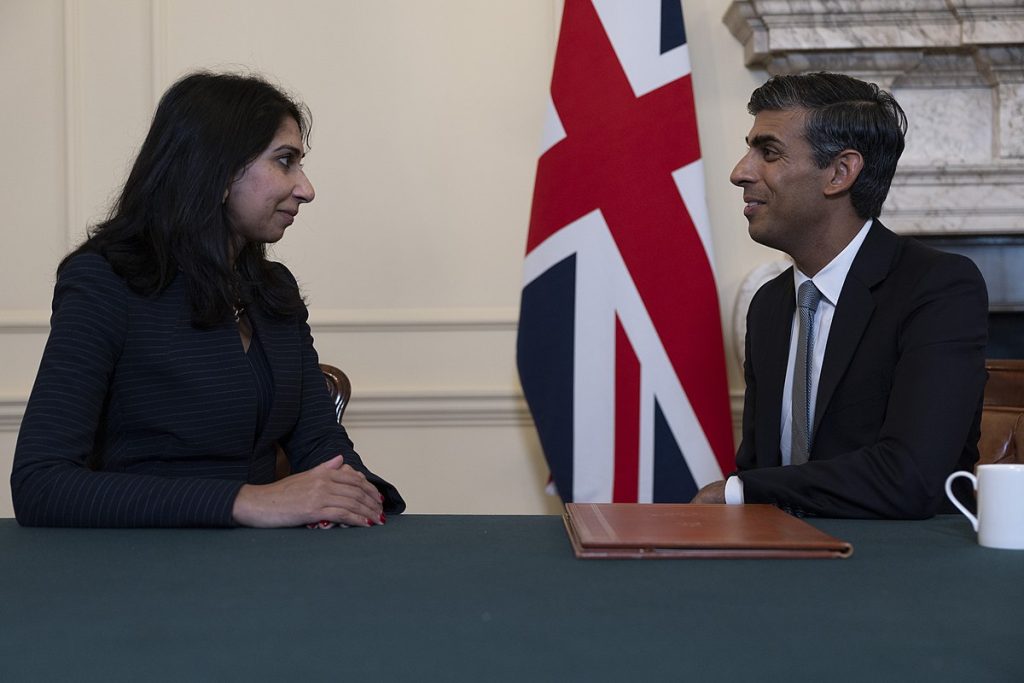
Sarah Lloyd, a senior trainer and research coordinator for Pace, offered an explanation for this year-on-year increase in victims of modern slavery.
She said: “In recent years, the impact of Covid and the current cost of living crisis are definite major contributing factors.
“Offenders recognise the opportunities to target children and families in these challenging times.”
In light of the current economic situation in the UK, where more families and individuals will be vulnerable, alongside the increase of homelessness in the UK, human trafficking is forecasted to increase, demanding serious attention.
To combat an ever-growing issue, Pace believes that training and education is vital: it even offers tailored training.
Lloyd said: “There is a duty to report if you believe a child is a victim of trafficking and modern slavery, however, we come across professionals who do not understand what trafficking or modern-day slavery is, or child exploitation.
“They are unaware of how to refer their case, or if they do refer, they fail to see the value of that, and this means many children and victims are not being identified or offered the much-needed support.”
Reflecting on the current support systems accessible to victims, Lloyd raised the concern that too often victims are criminalised rather than safeguarded, as they end up convicted with the crimes they were coerced into committing when trafficked, rather than being recognised as victims of criminal exploitation.
Lloyd said: “There is a clear need for a national strategy, and enhancing powers to charge offenders who groom children into criminal acts, giving law enforcement clarity on criminalising the offenders’ exploiting children, and not criminalising the children, whilst focusing on a safeguarding response for them.”
Pace therefore reminds people that the legislation in place has a responsibility to target its criminalisation towards offenders, not victims.
The charity was founded by Irene Ivison, whose 17-year-old daughter Fiona was groomed, sexually exploited, coerced into prostitution, and later murdered by a client.
Irene had spent three years asking social services to help remove Fiona from her groomer’s clutches, but Fiona was deemed not at risk, coming from a “good family”.
Pace as a charity not only offers support to families with a child victim of human trafficking, but calls for legislation to be held accountable for its failure to support victims of modern slavery.
Criminalising victims not only stops victims from recognising their own struggle, but it makes them feel like they don’t even deserve help when they are aware of it.
Kat added: “It is the government’s responsibility, and they should be held accountable because they are allowing it.”
